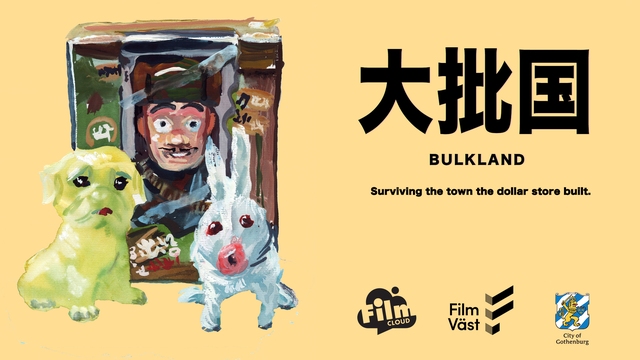Bulkland
Surviving the Town the Dollar Store Built
 The Futian Market of Yiwu in China is where wholesale buyers come from around the world to buy cheap Chinese goods. Covering a massive 4 million square metres, over 100,000 suppliers hawk their wares. They sell everything from toys to fluffy handcuffs, to plastic Santas doing strange things. Business moves at a hundred miles an hour and the air is full of tales of quick fortunes, kidnapped businessmen and now, a slumping market.
The Futian Market of Yiwu in China is where wholesale buyers come from around the world to buy cheap Chinese goods. Covering a massive 4 million square metres, over 100,000 suppliers hawk their wares. They sell everything from toys to fluffy handcuffs, to plastic Santas doing strange things. Business moves at a hundred miles an hour and the air is full of tales of quick fortunes, kidnapped businessmen and now, a slumping market.
30 years ago Yiwu was a poor and dilapidated backwater. 89-year old Gong Jinxiang remembers a time when " wild vegetables were the only food source," but since Deng Xiaoping opened China's economy up, the city has been thriving. Everyone in Yiwu is an entrepreneur, from the international businessmen to the local cottage industrialists. Wong Xiaoying "had never heard of the concept of 'Christmas'", but now makes her living trading in Christmas decorations and kitsch Santa figurines.
The new rich in Yiwu spend their money on cars and designer brands, and spend their evenings in the nightclubs. Belarusian teen Katey performs for the newly wealthy crowd, surrounded by sparkling bottles of champagne and vodka, she sings over the thumping music. But this is a city with no rules. German businessman Marco Tonelli compares it to "the Wild West, the Eighteenth Century, in America".
But Yiwu's boom seems to be coming to an end. Everyday thousands of migrant workers crowd the streets desperately looking for work. Wages are low and employment hard to come by. Even the international businessmen find it hard: "they want everything, take, take, take", ruminates Englishman Nigel Cropp. The freedom from bureaucracy is what made Yiwu such an attractive place to do business, but with prices rising and quality low the city is beginning to lose its allure. Yiwu is just one casualty of the downturn in the Chinese economy.
Through interviews with international entrepreneurs, Chinese migrant workers, local vendors, and elderly residents, Bulkland weaves a story of a city with few rules and plenty of opportunity, but has Yiwu become an exemplar of China's faltering Tiger?







